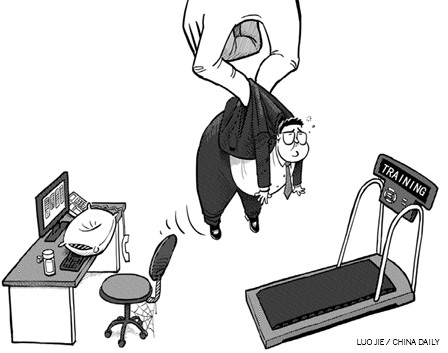People at heart of administrative reform

The Chinese government is stepping up efforts to modernize public services and the institutions that help them do that.
High quality, efficient and accountable public services are essential to the government's vision of creating a fair and harmonious society. As China's wealth grows, the public's expectations of what they get from their taxes and social insurance contributions will rise with it - and each generation will have successively higher expectations than the last.
Administrative reform is fundamentally a major exercise in change management - changing the way services are delivered, how institutions account to their citizens and most fundamental of all, the way officials deal with the public.
In Europe these days, apart from our Prime Minister we look at citizens as clients and customers. Fundamental to any change program are the people who deliver the change and those that will champion it; which brings us to China's civil servants
Civil servants get a pretty poor press in China (as they do elsewhere). They are seen as cosseted, privileged, and "on the make".
For sure there are plenty of instances of waste, corruption and misuse of power. But from personal experience and from the very fact that public services do operate in China and in some cases very well and not least from the superb response to its recent disasters, I think China's public servants are an unfairly maligned bunch.
But change is needed. If a society wants its public servants to perform, it has to reward them well.
Current civil service pay levels are very low and an invitation to 'rent seeking' behavior. The current benefit package also represents a fundamental barrier to attracting people from the private sector into the civil service or to getting civil servants to move into the private sector, especially after they have passed the mid-career point.
So, the government has to steadily increase pay across the board but also relate those pay levels to the skills needed for each job and the performance achieved. In Singapore for example all civil servant salaries and even those of ministers are benchmarked against private sector equivalents.
At the same time it also needs to reduce and monetize non-salary benefits. The recent decision of Beijing Municipality to bring its public servants into the basic medical insurance scheme is a welcome development; as is the interest shown in bringing civil servants into the basic enterprise pension scheme.
Go to Forum >>0 Comments
 Add your comments...
Add your comments...
- User Name Required
- Your Comment
- Racist, abusive and off-topic comments may be removed by the moderator.
 0
0 






